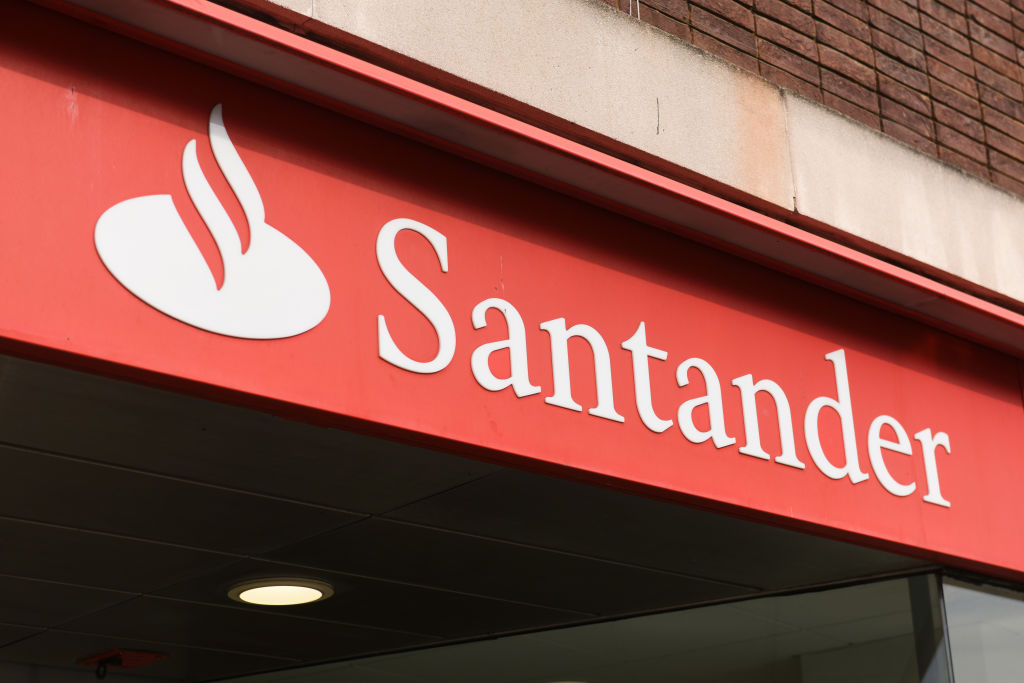Mortgage help from today: lenders pledge more help as rates soar
Banks and building societies have agreed to offer mortgage help with more flexibility to homeowners struggling with rising interest rates


Get the latest financial news, insights and expert analysis from our award-winning MoneyWeek team, to help you understand what really matters when it comes to your finances.
You are now subscribed
Your newsletter sign-up was successful
Want to add more newsletters?

Twice daily
MoneyWeek
Get the latest financial news, insights and expert analysis from our award-winning MoneyWeek team, to help you understand what really matters when it comes to your finances.

Four times a week
Look After My Bills
Sign up to our free money-saving newsletter, filled with the latest news and expert advice to help you find the best tips and deals for managing your bills. Start saving today!
Homeowners struggling with soaring mortgage rates amid interest rate hikes will get more flexibility from today with their payments after bank bosses met the chancellor, Jeremy Hunt, in Downing Street and agreed to a series of support measures.
Borrowers will be able to make a temporary change to their mortgage for six months to give them some breathing space, while there will be a 12-month delay before repossession proceedings can start against those who have missed payments.
The chancellor said the government was particularly worried about people at risk of losing their homes because they fall behind in their mortgage payments, and homeowners “who are having to change their mortgage because their fixed rate comes to an end, and they're worried about the impact on their family finances of higher mortgage rates”.
MoneyWeek
Subscribe to MoneyWeek today and get your first six magazine issues absolutely FREE

Sign up to Money Morning
Don't miss the latest investment and personal finances news, market analysis, plus money-saving tips with our free twice-daily newsletter
Don't miss the latest investment and personal finances news, market analysis, plus money-saving tips with our free twice-daily newsletter
Mortgage rates are continuing to rise after the Bank of England announced a shock hike in the base rate to 5% last month.
According to the data provider Moneyfacts, the average two-year fixed-rate mortgage deal is 6.63%. This is up from 6.54% on the previous working day. The average five-year fix is 6.13%, up from 6.04% on the previous working day.
Hunt said the support package agreed with mortgage lenders “should offer comfort to those who are anxious about high interest rates and support for those who do get into difficulty”.
He also reiterated that tackling high inflation was the government’s number one priority and that he was “absolutely committed to supporting the Bank of England to do what it takes”.
What mortgage support measures have been announced?
A range of mortgage lenders – which cover over 75% of the market - have agreed to a new mortgage charter providing support to residential mortgage customers. The measures are:
- Anyone worried about their mortgage repayments can call their lender for information and support, without any impact on their credit score.
- Customers won’t be forced to have their homes repossessed within 12 months from their first missed payment.
- Customers approaching the end of a fixed-rate deal will be offered the chance to lock in a deal up to six months ahead. They will also be able to apply for a better deal right up until their new term starts, if one becomes available.
- A new agreement between lenders, the Financial Conduct Authority (FCA) and the government permitting customers to switch to an interest-only mortgage for six months, or extend their mortgage term to reduce their monthly payments and switch back to their original term within the first six months, if they choose to. Both options can be taken without a new affordability check and with no effect on their credit score.
- Support for customers who are up-to-date with payments to switch to a new mortgage deal at the end of their existing fixed-rate deal without another affordability check.
- Providing well-timed information to help customers plan ahead if their current rate is due to end.
- Offer tailored support for anyone struggling: this could mean extending their term to reduce their payments, offering a switch to interest-only payments, or other options like a temporary payment deferral or part-interest part-repayment option.
Hunt said it was important homeowners can talk to their mortgage lender without it having any impact on their credit score.
Nikhil Rathi, chief executive of the FCA, said: “This meeting builds on the work we’ve done over the last year to ensure those who get into difficulty receive the tailored support they need. We’ll move quickly to make any changes needed to support today’s commitments."
If you‘re having trouble making your mortgage payments, the golden rule is to always make sure you speak to your lender about it. If you miss a payment or simply decide to stop paying for a period of time - known as a mortgage holiday - this could have serious consequences and will also harm your credit score.
Is there a mortgage crisis?
The government has been under pressure to step in and help mortgage customers after the surprise announcement to hike interest rates from 4.5% to 5% last month.
Opposition parties are calling on the government to do more. Shadow chancellor Rachel Reeves branded the chancellor's mortgage measures "a weak response". The Liberal Democrats are calling for a Mortgage Protection Fund, which would offer targeted support of up to £300 a month to those families facing the steepest rise in mortgage costs and the prospect of losing their homes. It says households face a £3,600 rise in mortgage payments, equivalent to a 6p income tax hike.
Liberal Democrat leader Ed Davey said: “This is a Conservative mortgage tax on millions of families. People are seeing their monthly mortgage payments go through the roof, all because the Conservatives lost control of inflation and the economy.”
However, aside from the support measures agreed with the mortgage industry, Hunt and prime minister Rishi Sunak have both dismissed suggestions to intervene, arguing it could undermine the Bank of England's battle against inflation. The latest figures show inflation remained stuck at 8.7% in May.
While many commentators have called the sharp rise in mortgage rates a “crisis” or a “mortgage rate crunch”, the Treasury has released data showing despite the panic among some households about mortgage payments, mortgage arrears and defaults are still incredibly low, and many homeowners are in a strong position.
In the first quarter of 2023, the FCA reported 0.86% of total residential mortgage balances in arrears - compared to a 3.32% rate in 2009.
The proportion of disposable income spent on mortgage payments is currently at 5.4%, compared to around 10% in the 1990s and prior to the financial crisis.
Meanwhile, the average homeowner remortgaging over the past 12 months had around a 50% loan-to-value ratio. The Treasury said: “This indicates homeowners have considerable equity in their homes, which makes it easier to manage repayments. Lenders have less than 10% ‘owner-occupier mortgages’ on their books with loan-to-value rates greater than 75%, compared to around 25% before the 2008 financial crisis. Taken together, this puts the market in a significantly stronger position than before.”
Get the latest financial news, insights and expert analysis from our award-winning MoneyWeek team, to help you understand what really matters when it comes to your finances.

Ruth is an award-winning financial journalist with more than 15 years' experience of working on national newspapers, websites and specialist magazines.
She is passionate about helping people feel more confident about their finances. She was previously editor of Times Money Mentor, and prior to that was deputy Money editor at The Sunday Times.
A multi-award winning journalist, Ruth started her career on a pensions magazine at the FT Group, and has also worked at Money Observer and Money Advice Service.
Outside of work, she is a mum to two young children, while also serving as a magistrate and an NHS volunteer.
-
 How a ‘great view’ from your home can boost its value by 35%
How a ‘great view’ from your home can boost its value by 35%A house that comes with a picturesque backdrop could add tens of thousands of pounds to its asking price – but how does each region compare?
-
 What is a care fees annuity and how much does it cost?
What is a care fees annuity and how much does it cost?How we will be cared for in our later years – and how much we are willing to pay for it – are conversations best had as early as possible. One option to cover the cost is a care fees annuity. We look at the pros and cons.
-
 Why pension transfers are so tricky
Why pension transfers are so trickyInvestors could lose out when they do a pension transfer, as the process is fraught with risk and requires advice, says David Prosser
-
 Act now to bag NatWest-owned Ulster Bank's 5.2% easy access savings account
Act now to bag NatWest-owned Ulster Bank's 5.2% easy access savings accountUlster Bank is offering savers the chance to earn 5.2% on their cash savings, but you need to act fast as easy access rates are falling. We have all the details
-
 Moneybox raises market-leading cash ISA to 5%
Moneybox raises market-leading cash ISA to 5%Savings and investing app MoneyBox has boosted the rate on its cash ISA again, hiking it from 4.75% to 5% making it one of top rates. We have all the details.
-
 October NS&I Premium Bonds winners - check now to see what you won
October NS&I Premium Bonds winners - check now to see what you wonNS&I Premium Bonds holders can check now to see if they have won a prize this month. We explain how to check your premium bonds
-
 The best packaged bank accounts
The best packaged bank accountsAdvice Packaged bank accounts can offer great value with useful additional perks – but get it wrong and you could be out of pocket
-
 Santander launches best easy access savings rate in 14 years
Santander launches best easy access savings rate in 14 yearsSantander launches market leading easy access savings rate, but you’ll have to act fast if you want to take advantage - we have all the details
-
 Bank of Baroda closes doors to UK retail banking
Bank of Baroda closes doors to UK retail bankingAfter almost 70 years of operating in the UK, one of India’s largest bank is shutting up shop in the UK retail banking market. We explain everything you need to know if you have savings or a current account with Bank of Baroda
-
 The rise and fall of finfluencers as FCA clamps down on poor advice
The rise and fall of finfluencers as FCA clamps down on poor adviceFCA clamps down on ‘finfluencers’ - but will it protect consumers from ‘bad advice’? Kalpana Fitzpatrick looks at the rise and fall of finfluencers